Filter by
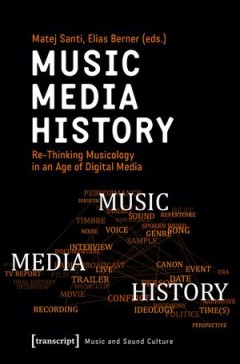
Music - Media - History: Re-Thinking Musicology in an Age of Digital Media
Music and sound shape the emotional content of audio-visual media and carry different meanings. This volume considers audio-visual material as a primary source for historiography. By analyzing how the same sounds are used in different media contexts at different times, the contributors intend to challenge the linear perspective of (music) history based on canonic authority. The book discusses A…
- Edition
- 1
- ISBN/ISSN
- 9783839451458
- Collation
- -
- Series Title
- -
- Call Number
- 780 MUS m
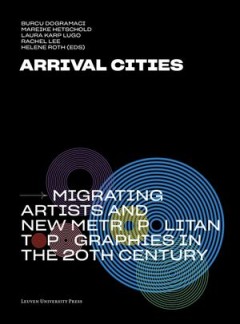
Arrival Cities : Migrating Artists and New Metropolitan Topographies in the 2…
The impact of migrating artists on modern art Exile and migration played a critical role in the diffusion and development of modernism around the globe, yet have remained largely understudied phenomena within art historiography. Focusing on the intersections of exile, artistic practice, and urban space, this volume brings together contributions by international researchers committed to revisin…
- Edition
- -
- ISBN/ISSN
- 9789461663245
- Collation
- -
- Series Title
- -
- Call Number
- 710 ARR
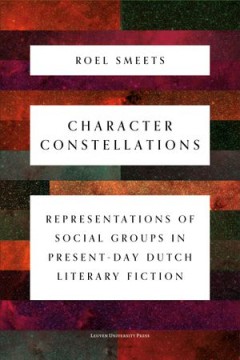
Character Constellations : Representations of Social Groups in Present-Day Du…
Fiction has a major social impact, not least because it co-shapes the image that society has of various social groups. Drawing on a collection of 170 contemporary Dutch-language novels, Character Constellations presents a range of data-driven, statistical models to study depictions of characters in terms of gender, race, ethnicity, class, age, sexuality, and other identity categories. Incorpora…
- Edition
- -
- ISBN/ISSN
- 9789461664129
- Collation
- 252 halaman
- Series Title
- -
- Call Number
- 800 SME c
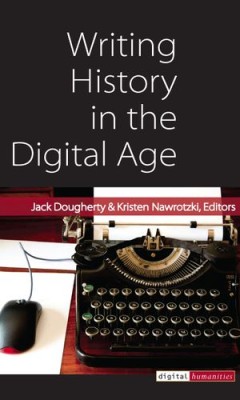
Writing History in the Digital Age
Writing History in the Digital Age began as a “what-if” experiment by posing a question: How have Internet technologies influenced how historians think, teach, author, and publish? To illustrate their answer, the contributors agreed to share the stages of their book-in-progress as it was constructed on the public web.To facilitate this innovative volume, editors Jack Dougherty and Kristen N…
- Edition
- -
- ISBN/ISSN
- 9780472900244
- Collation
- -
- Series Title
- -
- Call Number
- 809 NAW w
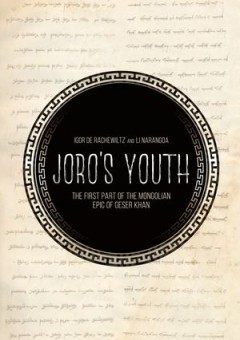
Joro's Youth : The first part of the Mongolian epic of Geser Khan
The epic of King Gesar of Ling is the national oral epic of Tibet, sung by itinerant bards in their land for many centuries but not recorded in print until recent times. Spreading widely beyond Tibet, there are extant versions in other languages of Central Asia. The first printed version is from Mongolia, produced on the orders of the Kangxi emperor of the Manchu Qing dynasty in the early 18th …
- Edition
- -
- ISBN/ISSN
- 9781760460822
- Collation
- -
- Series Title
- -
- Call Number
- 920 RAC j
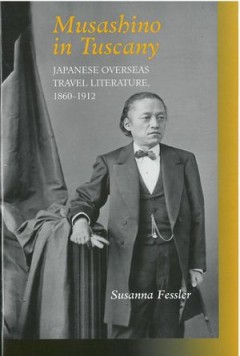
Musashino in Tuscany: Japanese Overseas Travel Literature, 1860–1912
By the late Meiji period Japanese were venturing abroad in great numbers, and some of those who traveled kept diaries and wrote formal travelogues. These travelogues reflected a changing view of the West and changing artistic sensibilities in the long-standing Japanese literary tradition of travel writing (kikoobungaku). This book shows that overseas Meiji-period travel writers struck out to cr…
- Edition
- -
- ISBN/ISSN
- 9780472901975
- Collation
- -
- Series Title
- -
- Call Number
- 895.6 FES m
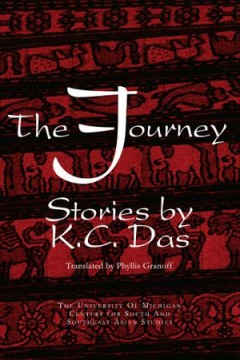
The Journey: Stories by K. C. Das
K. C. Das is deservedly one of the most celebrated writers in India today. He writes primarily in Oriya, the language of his native state of Orissa, where he was born in 1924. A civil servant by profession, Das pursued a second career as a writer of stories, poems, and essays. The stories in this collection take place in an urban setting. The characters are mainly middle class, making them m…
- Edition
- -
- ISBN/ISSN
- 9780472902316
- Collation
- -
- Series Title
- -
- Call Number
- 808.84 DAS j
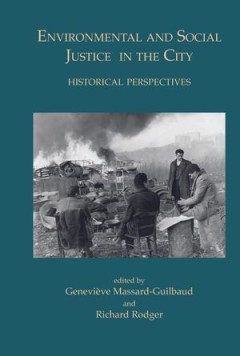
Environmental and Social Justice in the City: Historical Perspectives
The world is full of environmental injustices and inequalities, yet few European historians have tackled these subjects head on; nor have they explored their relationships with social inequalities. In this innovative collection of historical essays the contributors consider a range of past environmental injustices, spanning seven northern and western European countries and with several chapters…
- Edition
- -
- ISBN/ISSN
- 9781874267614
- Collation
- -
- Series Title
- -
- Call Number
- 808.4 ENV e
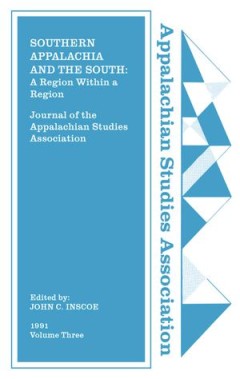
Southern Appalachia and the South: A Region Within a Region - Volume Three
This volume of the Journal of the Appalachian Studies Association explores the intersections between Southerners and Southern Appalachians and the theoretical and practical implication of regional identity, marginality, ethnic commonalities, and comparative perspectives during the 19th and 20th centuries.
- Edition
- -
- ISBN/ISSN
- 9781469636986
- Collation
- -
- Series Title
- -
- Call Number
- 808.84 INS s
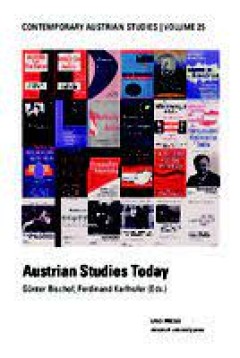
Austrian Studies Today
"This volume celebrates the study of Austria in the twentieth century by historians, political scientists and social scientists produced in the previous twenty-four volumes of Contemporary Austrian Studies. One contributor from each of the previous volumes has been asked to update the state of scholarship in the field addressed in the respective volume. The title “Austrian Studies Today,” t…
- Edition
- -
- ISBN/ISSN
- 9783903122178
- Collation
- -
- Series Title
- -
- Call Number
- -
 Computer Science, Information & General Works
Computer Science, Information & General Works  Philosophy & Psychology
Philosophy & Psychology  Religion
Religion  Social Sciences
Social Sciences  Language
Language  Pure Science
Pure Science  Applied Sciences
Applied Sciences  Art & Recreation
Art & Recreation  Literature
Literature  History & Geography
History & Geography